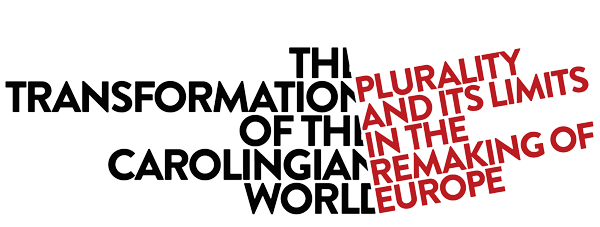
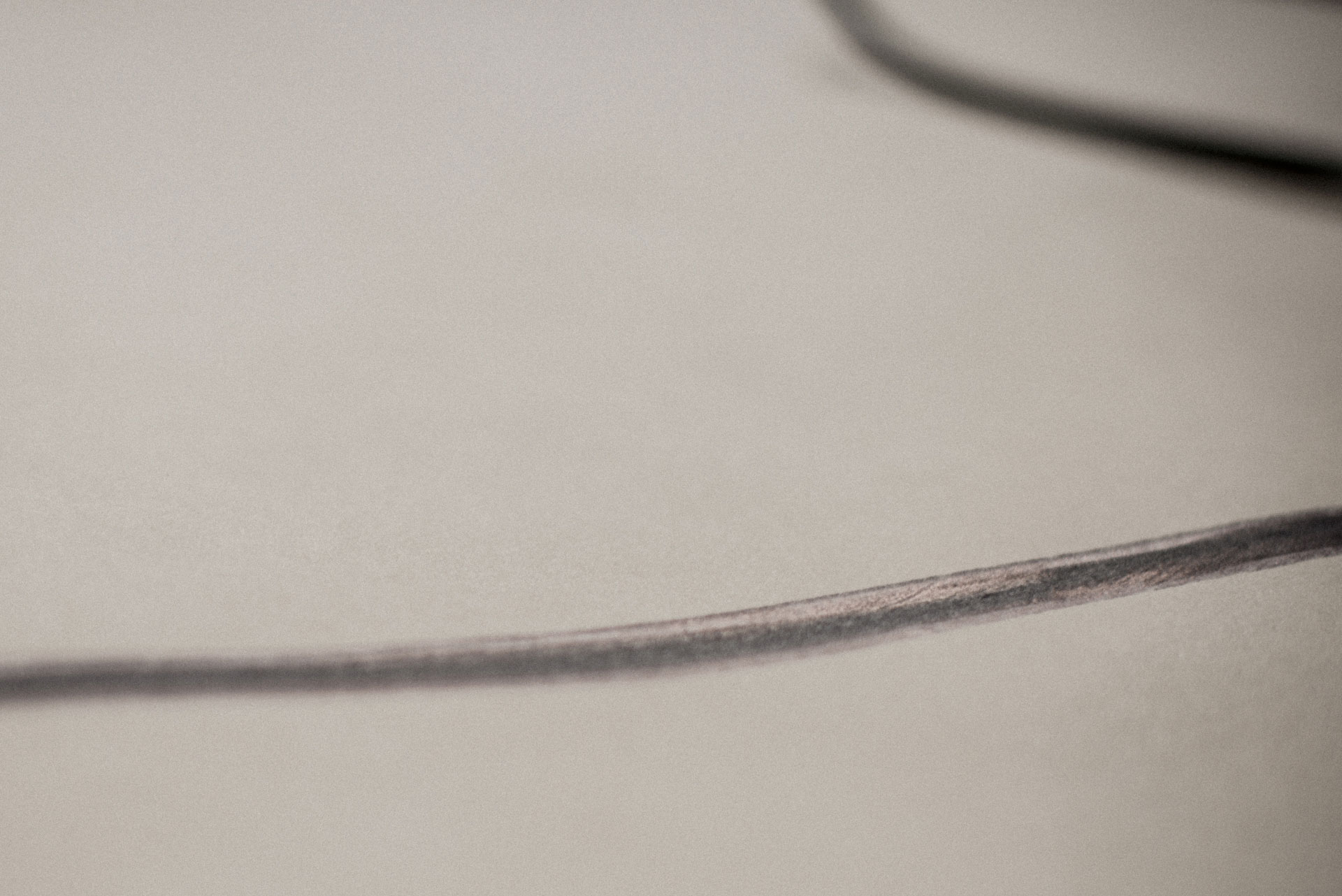
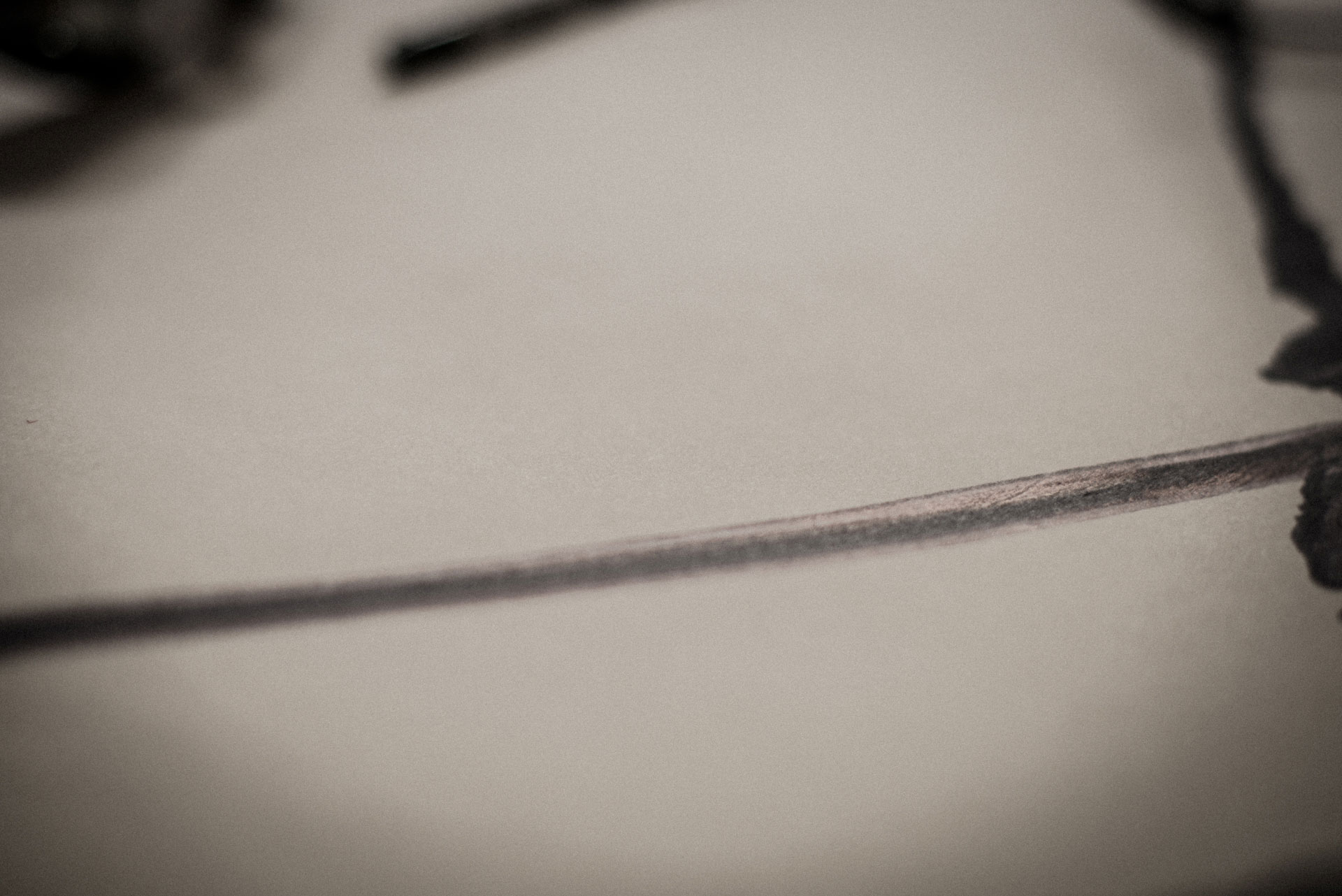
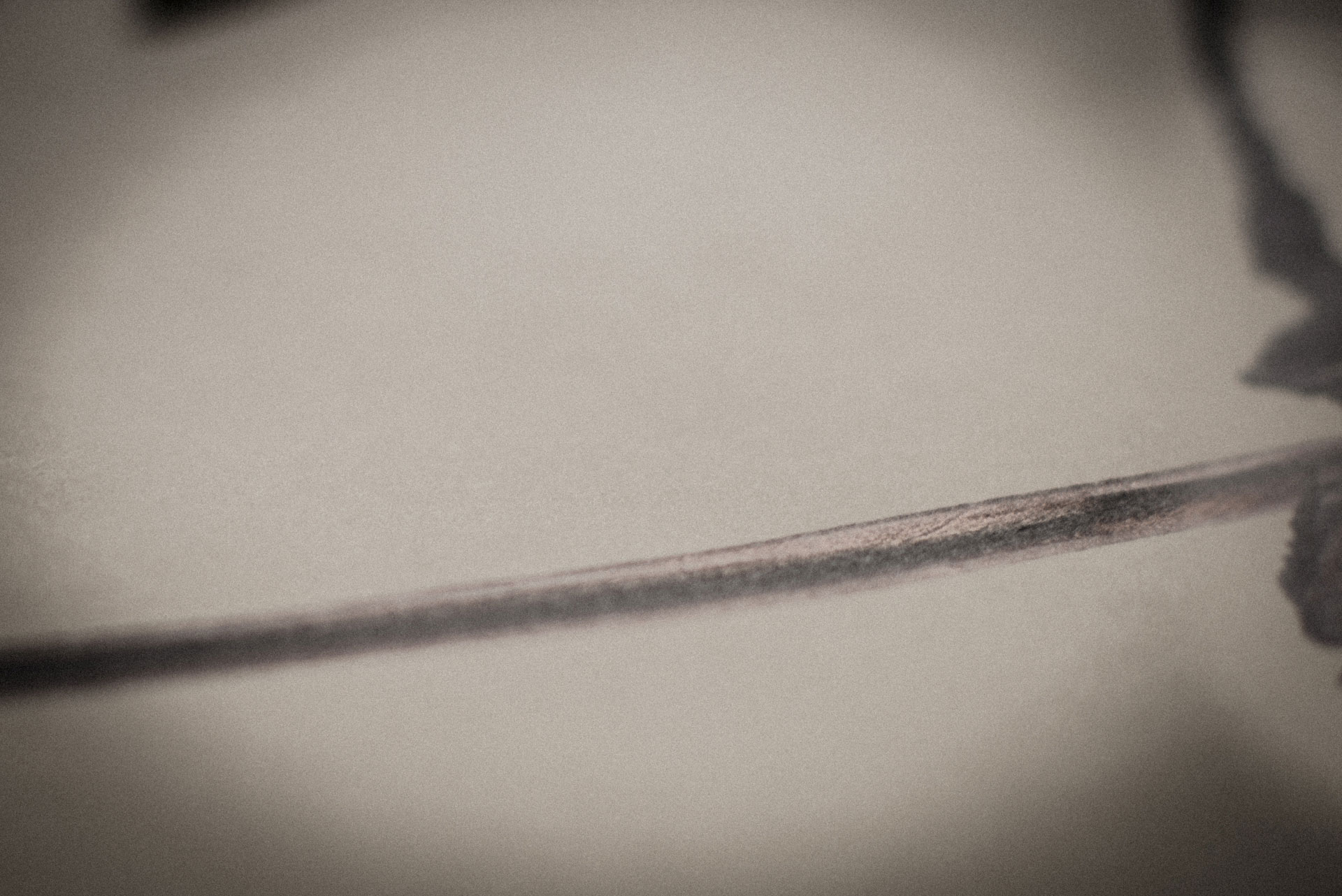
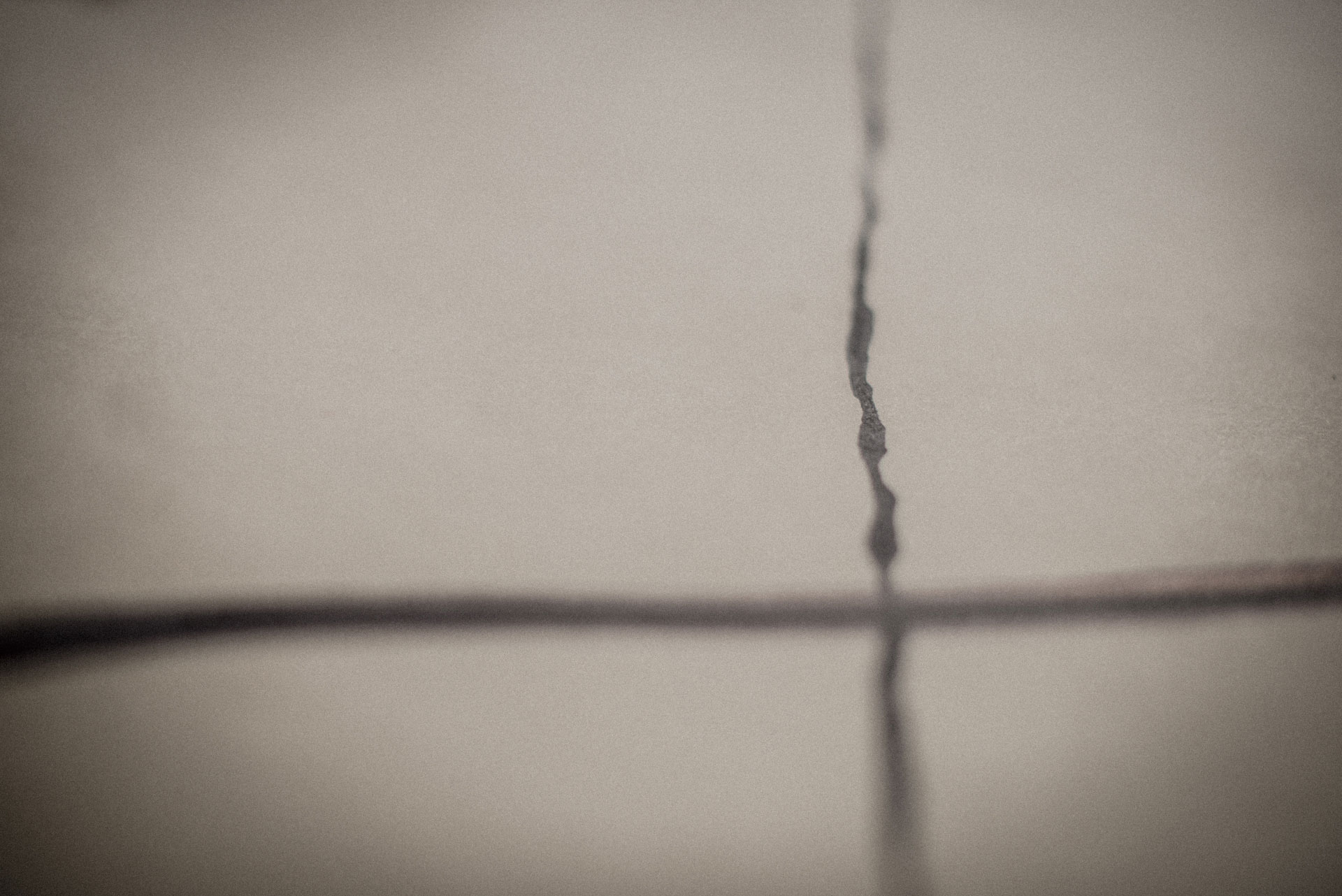
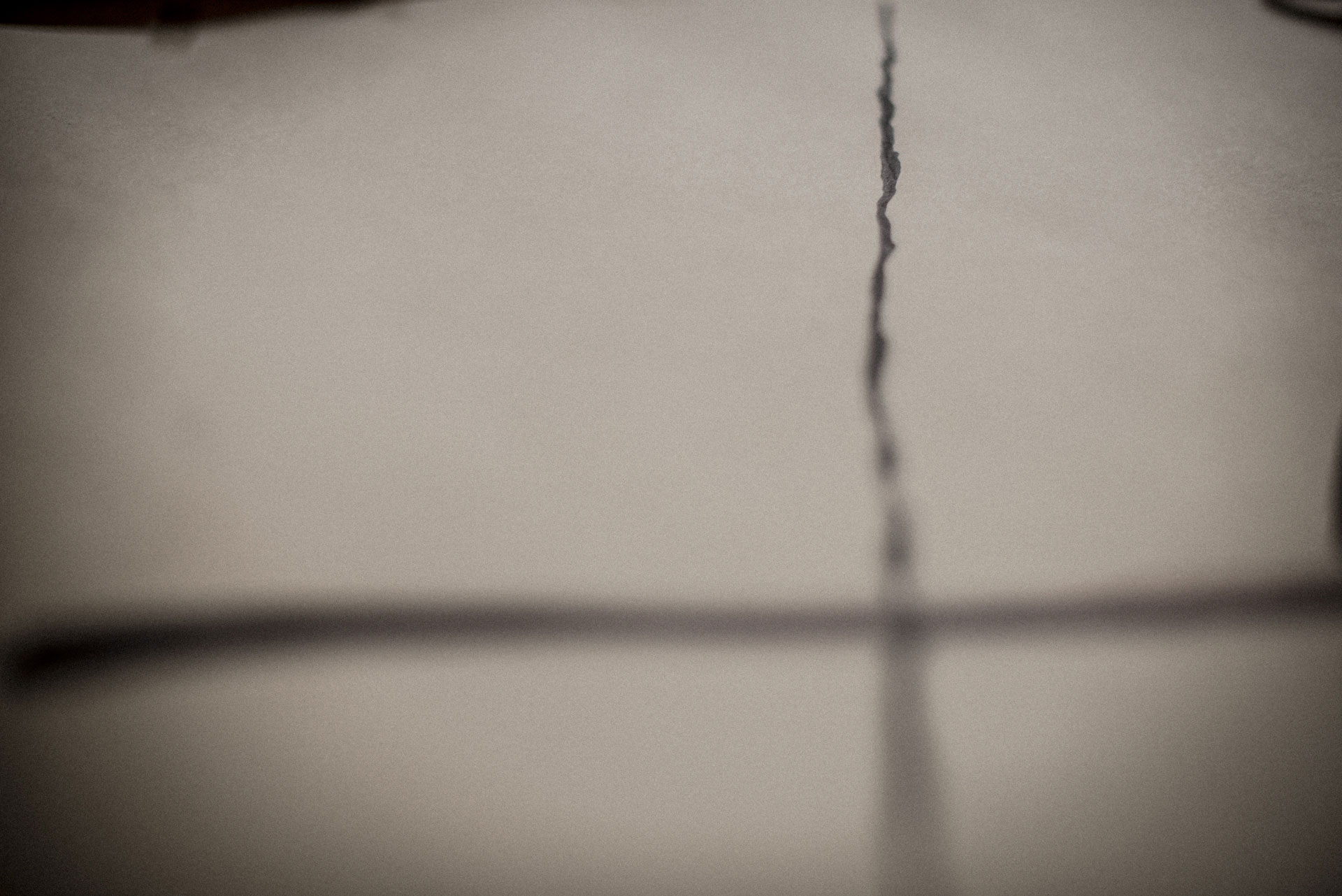
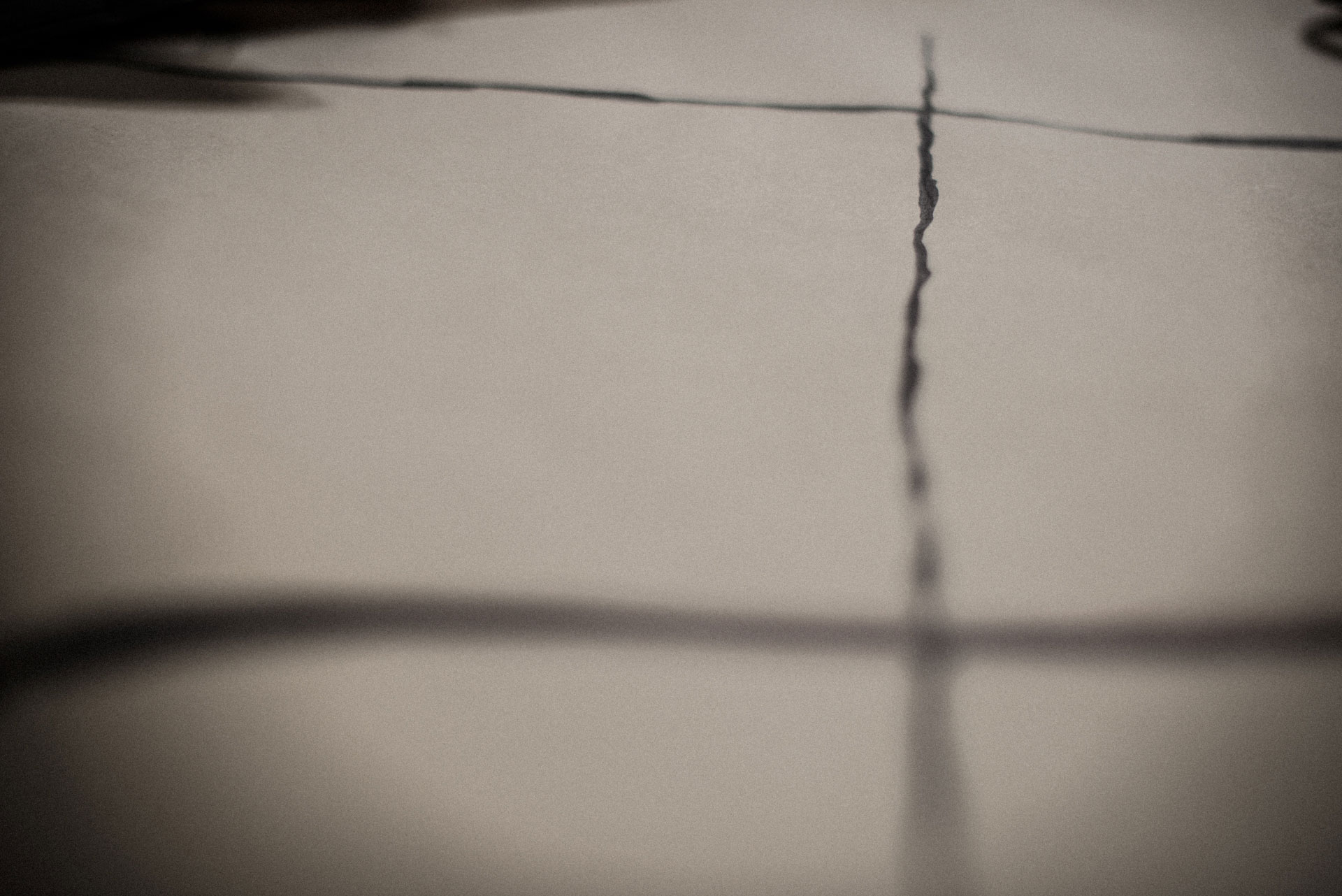
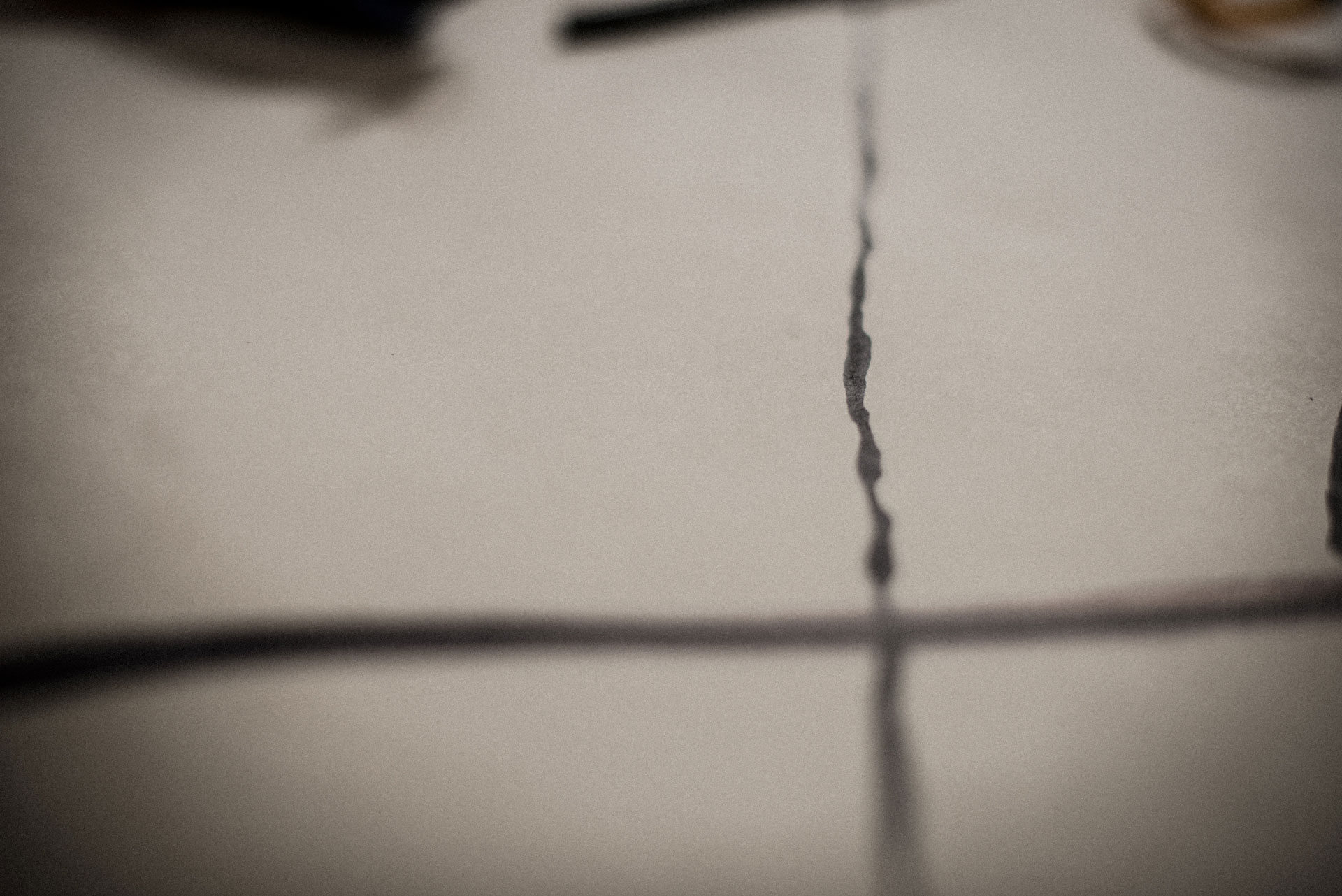
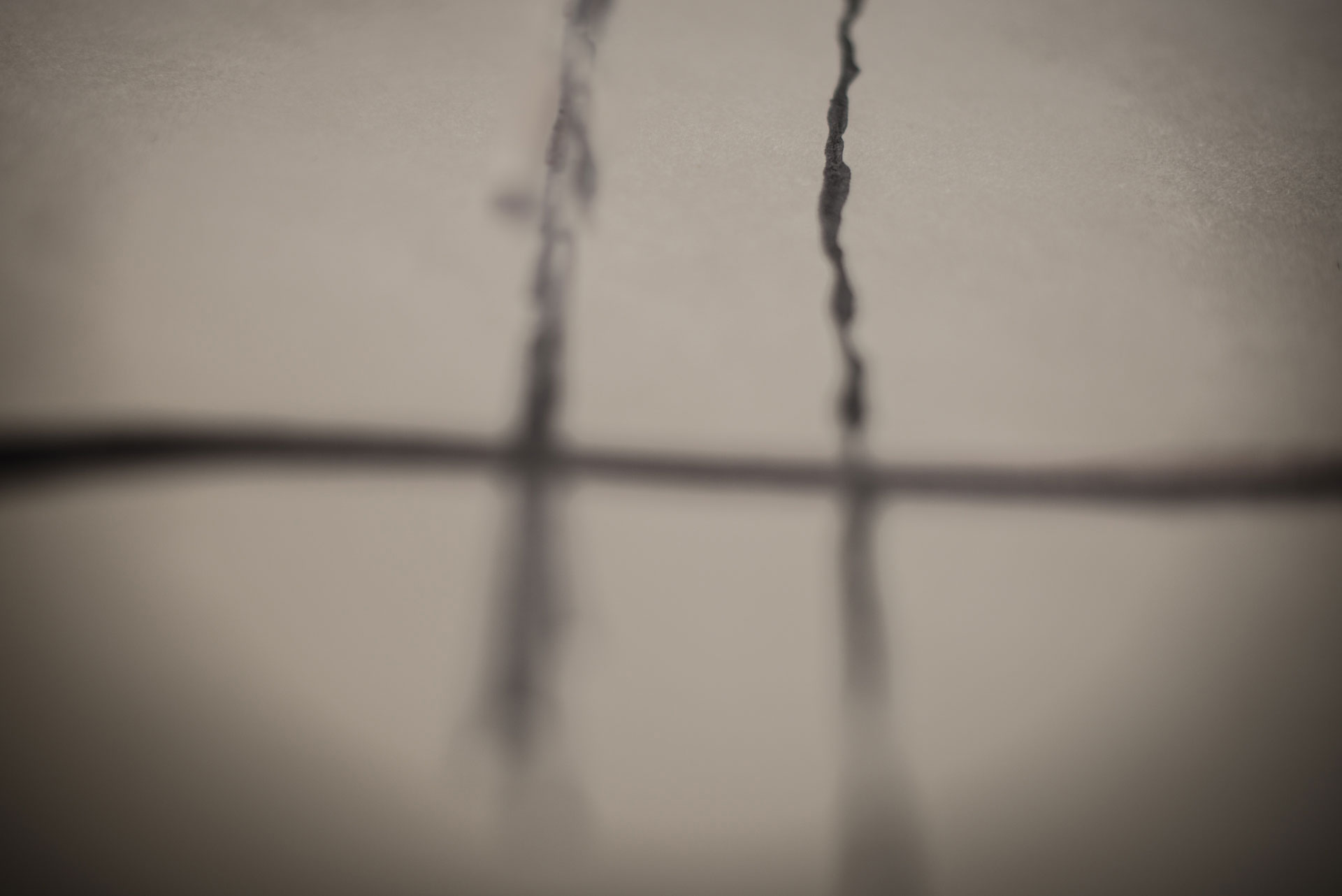
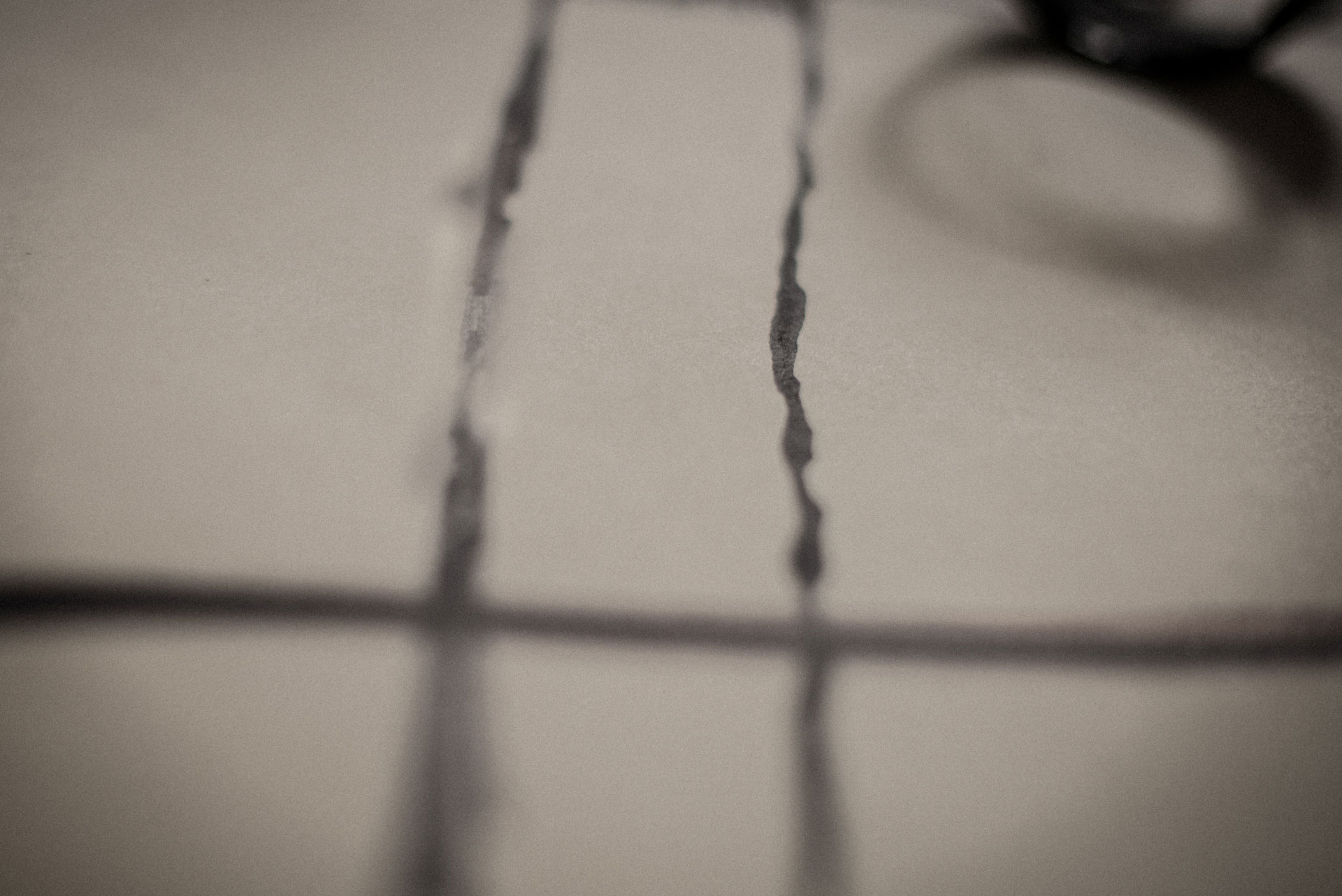

The project
The Transformation of the Carolingian World
Plurality and Its Limits in Europe, 9th to 12th Century
The decades after the formation of the Carolingian empire around 800 and its territorial expansion to encompass most of Western Europe are correctly seen as a formative period for the emergence of a distinct European culture of Western Christendom. However, research in the last three decades has fundamentally changed the ways in which we perceive the Carolingian achievement. It is no longer a story of the restoration of imperial rule and Christian unity after the Dark Ages between the end of the Roman Empire and its renovation under Charlemagne. Instead, the Rise of the Carolingians is now seen as part of a longer history of cultural and social experimentation, of emulation and innovation, after the end of the Western Roman Empire, in which Carolingian politicians, rulers, bishops, theologians, intellectuals and lawyers built on the diverse social and political experiments of post-Roman societies and polities. The Carolingian reforms did not replace post-Roman multiplicity but integrated the inherited diversity in a new imperial framework.
News and events
News and Events
2023
Histories In Transition – Online Seminars on the Transformation of the Carolingian World 20
Niklas Fröhlich (Universität Wuppertal)
Texts in transformation: Late antique chroniclers, Carolingian revisers, and modern editors
Friday, June 30, at 04:00 p.m. CET
Histories In Transition – Online Seminars on the Transformation of the Carolingian World 19
Anja Rathmann (Universität Basel)
History in the Liber Floridus – pasts, presents, and futures
Wednesday, June 7, at 04:00 p.m. CET
Histories In Transition – Online Seminars on the Transformation of the Carolingian World 18
James Palmer (Saint-Andrews University)
Making Sense of Disputed Times: History and Computus in the Reign of Charles the Bald (840-877)
Friday, May 12, at 04:00 p.m. CET
Histories In Transition – Online Seminars on the Transformation of the Carolingian World 17
James Miller (Oxford University)
Writing monastic history at tenth-century Fleury: Benedict’s body and the meaning of its translation
Friday, April 21, at 04:00 p.m. CET
Histories In Transition – Online Seminars on the Transformation of the Carolingian World 16
Carolingian Knowledge Management in the Margin
Mariken Teeuwen (Leiden University)
Institute for Medieval Research, Austrian Academy of Sciences
Thursday, March 9, 2023, at 4:00 p.m. CET
2022
Frankish Annals: Texts – Transmission – Editions
Bergische Universität Wuppertal, 15-16 September 2022
Frankish annals of the eighth and ninth centuries still resist a consensual scholarly synthesis on several aspects. This conference aims to bring together new approaches and future perspectives for the study of annals. Starting with a review of the fundamentals of the genre, papers will then move on to changes in narrative techniques, the importance of codicological contexts, dissemination, and the practice of rewriting. Particular attention will be paid to the challenges annals are posing to editors, as the many nineteenth-century editions still in use are less and less suitable for a variety of present-day approaches. In all, the conference will hopefully contribute to a better understanding of history writing in early medieval Europe.
Organised in collaboration with Histories in Transition and the Graduiertenkolleg 2196 “Dokument – Text – Edition” by Bart van Hees and Sören Kaschke
Histories In Transition – Online Seminars on the Transformation of the Carolingian World 15
Graeme Ward (Universität Tübingen)
Making Liturgical History in Eleventh-Century Aquitaine: Ademar of Chabannes, Amalarius of Metz, and the Monastic Office
Wednesday, April 6, 2022 at 12:00 p.m. EST, 6 p.m. CET
Histories In Transition – Online Seminars on the Transformation of the Carolingian World 14
Hans Hummer (Wayne State University)
The Carolingian Genealogies and their Manuscripts
Wednesday, Mar 9, 2022 at 12:00 p.m. EST, 6 p.m. CET
2021
Histories In Transition – Online Seminars on the Transformation of the Carolingian World 13
Steffen Patzold (Universität Tübingen)
The Collectio Dionysio-Hadriana as resource of historical knowledge
Wednesday, December 1, 2021 at 5 p.m. CET
Histories In Transition – Online Seminars on the Transformation of the Carolingian World 12
Marco Stoffella (Università di Verona)
Christian time, calendars, and computus. The study of the past at the scriptorium in Verona
Monday, November 8, 2021 at 5 p.m. CET (11 a.m. EST)
Histories In Transition – Online Seminars on the Transformation of the Carolingian World 11
“Bede and the Continent. The Afterlives of Bede’s Chronicles, 8th to 12th Centuries”
Beda Venerabilis (672‒735) is the creator of several important texts on historiography and computus. His two chronicles in particular were widely transmitted and read soon after they were written. Especially in the Carolingian period, these sources, which were received, adapted and integrated into various codicological contexts, served as a basic framework of historical knowledge until the late Middle Ages and inspired countless chronistic and annalistic continuations. In addition, the stereotypical structure of Bede’s chronicles as a form-giving narrative inspired the composition of further chronicles. The workshop will look at the influence and effectiveness of Beda’s chronicles on the basis of several examples.
Máirín MacCarron (University College Cork)
The Key Features of Bede’s Chronicles
Joshua Westgard (University of Maryland)
Aspects of the Afterlife of Bede’s Historical Writings
Sören Kaschke (Universität zu Köln)
“The Years They Are A-Changing”. Bede’s Reckoning of Time and Its Adaptation in the Chronicon Universale of 741
Patrick S. Marschner (Österreichische Akademie der Wissenschaften, Wien)
A Historiographical Triad? Bede, the “Chronicon Moissiacense” and the Chronicle of Claudius of Turin
Richard Corradini (Österreichische Akademie der Wissenschaften, Wien)
The “Chronica de VI aetatibus mundi”. A Successful Bede Follow-up
Wednesday, June 16, 2021, at 2 p.m.-6 p.m. MEZ
Histories In Transition – Online Seminars on the Transformation of the Carolingian World 10
Bart van Hees (Bergische Universität Wuppertal)
Annals in the Frankish realms
Tuesday, May 25, 2021 at 11 a.m. EST (4 p.m. GMT)
Histories In Transition – Online Seminars on the Transformation of the Carolingian World 9
Eric J. Goldberg (Massachusetts Institute of Technology)
Eyewitness to the End of Empire: Author, Argument, and Audience of the ‘Annals of Saint-Vaast’
Monday, March 29, 2021: PAC 8:00 – 10:00, EST: 11:00 – 13:00, GMT: 16:00 – 18:00, UTC 17:00 – 19:00
Histories In Transition – Online Seminars on the Transformation of the Carolingian World 8
Charlotte Denoël (Bibliothèque nationale de France, Paris)
Image and Text in Ademar of Chabannes’ Notebook Leiden VLO 15
Monday, January 18, 2021: PAC 8:00 – 10:00, EST: 11:00 – 13:00, GMT: 16:00 – 18:00, UTC 17:00 – 19:00
2020
Histories In Transition – Online Seminars on the Transformation of the Carolingian World 7
Maximilian Diesenberger (Österreichische Akademie der Wissenschaften, Wien)
Histories in Transition: Salzburg and Admont
Wednesday, December 9, 2020: PAC 8:00 – 10:00, EST: 11:00 – 13:00, GMT: 16:00 – 18:00, UTC 17:00 – 19:00
Histories In Transition – Online Seminars on the Transformation of the Carolingian World 6
Jo Story (Leicester University)
Frankish History in Twelfth-century Durham: Symeon and the Manuscript Evidence
Monday, November 23, 2020: PAC 8:00 – 10:00, EST: 11:00 – 13:00, GMT: 16:00 – 18:00, UTC 17:00 – 19:00
Histories In Transition – Online Seminars on the Transformation of the Carolingian World 5
Helmut Reimitz (Princeton University)
History Books, the History of the Book and the History of History in the Carolingian and Post-Carolingian World
Monday, October 5, 2020: PAC 8:00 – 10:00, EST: 11:00 – 13:00, GMT: 16:00 – 18:00, UTC 17:00 – 19:00
Histories In Transition – Online Seminars on the Transformation of the Carolingian World 4
Patrick S. Marschner (Österreichische Akademie der Wissenschaften, Wien)
The World Map of the Corpus Pelagianum (BNE, Ms. 1513, fol. 1v.) and its Strategies of Identification
Friday, July 3, 2020: PAC 9:00 – 11:00, EST: 12:00 – 14:00, GMT: 17:00 – 19:00, UTC 18:00 – 20:00
Histories In Transition – Online Seminars on the Transformation of the Carolingian World 3
Steffen Patzold (Universität Tübingen)
Writing and Using History in 10th– and 11th-Century Bavaria: The Case of Freising
Friday, June 19, 2020: PAC 9:00 – 11:00, EST: 12:00 – 14:00, GMT: 17:00 – 19:00, UTC 18:00 – 20:00
Histories In Transition – Online Seminars on the Transformation of the Carolingian World 2
Matthias M. Tischler (ICREA/Universitat Autònoma de Barcelona)
Mapping the Early Medieval Landscape of Histories between Aquitaine, Southern Gaul and the Northern Iberian Peninsula: Some Hypotheses on the Role and Impact of Carolingian Historiography in Southwestern Europe
Friday, June 5, 2020: PAC 9:00 – 11:00, EST: 12:00 – 14:00, GMT: 17:00 – 19:00, UTC 18:00 – 20:00
Histories In Transition – Online Seminars on the Transformation of the Carolingian World 1
Frederic Clark (University of Southern California)
Critique and Book History: An Agenda for the History of Scholarship from the Medieval Manuscript Codex to Early Modern Print
Friday, May 22, 2020: PAC 10:00 – 12:00, EST: 13:00 – 15:00, GMT: 18:00 – 20:00, UTC 19:00 – 21:00
Start of the new series:
Histories In Transition – Online Seminars on the Transformation of the Carolingian World
Start of the new project:
Histories in Transition. The Transformation of the Carolingian World (9th to 12th century)
In this project we would like to explore the cultural history of the Carolingian and post-Carolingian world. The Carolingian reforms of language, script and education before and after 800 have been studied intensively as an important period for the formation of the social, political and cultural horizons of Latin Europe in the Middle Ages. This is, however, much less true for the period after the first two Carolingian emperors from the mid ninth century to the beginning of the twelfth which is still often regarded as a time of cultural decline, political fragmentation: a new Dark Age after the short ‘renaissance’ of learning, education and cultivation of knowledge in the time of Charlemagne and Louis the Pious (768 – 840 CE). It is, however, precisely this later and post-Carolingian period after the 840ies, from which the main bulk of the manuscripts attesting to and reinforcing the intensified efforts to establish new standards in Latin Europe have come down to us. What we observe is not only a new cultural base line in the Carolingian world, but also new standards to organize knowledge in books and libraries and the formation of a cultural convergence that held together the increasingly diverse and politically fragmented world of Latin Europe.
The project intends to use the writing and rewriting of history as a window into this process. We want to explore if, and if yes, how new approaches to the codification of knowledge changed the conceptualization of history, its generic boundaries, meaning and its place in (real or imagined) libraries. While we expect to find and explore a wide spectrum of possibilities, we also aim at sounding out the limits of these possibilities by a comparative approach between different regions, places, cultural backgrounds, and textual traditions.
The project has started with series of seminars at which members of this group will present their approaches, ongoing work, or future projects. This should help us to establish a common base line, and develop a more focused project design and a shared data-base for a more comprehensive comparison of different texts, contexts and trajectories, various cultural topographies and degrees of convergence in the late and post-Carolingian world – from the Atlantic, to Central and Eastern Europe and the Mediterranean world.
Start of the new project:
Carolingian Culture in Septimania and Catalonia. The Transformation of a Multi-Ethnic Middle Ground of the Euro-Mediterranean World
FWF stand alone project P 33080-G
project leaders: Walter Pohl, Matthias M. Tischler
project members: Patrick S. Marschner, Jan Odstrčilík
Start of the new project:
Margins at the Centre. Book Production and Practices of Annotation in the East Frankish Realm (ca. 830-900)
Senior Postdoc-Programm Elise-Richter (FWF) | Projekt V811-G
project leader: Cinzia Grifoni
2021-2024
2019
Publication of:
Uses of the Past in Times of Transition: Forgetting, Using and Discrediting the Past, in: Medieval Worlds. Comparative & Interdisciplinary Studies 10 (2019) 1-176.
Publication of:
Using and Not Using the Past after the Carolingian Empire c. 900–c.1050, ed. Sarah Greer/Alice Hicklin/Stefan Esders (London/New York 2019).
The volume offers a new take on European history from c.900 to c.1050, examining the post-Carolingian period in its own right and presenting it as a time of creative experimentation with new forms of authority and legitimacy. In the late eighth century, the Frankish king Charlemagne put together a new empire. Less than a century later, that empire had collapsed. The story of Europe following the end of the Carolingian empire has often been presented as a tragedy: a time of turbulence and disintegration, out of which the new, recognisably medieval kingdoms of Europe emerged. This collection offers a different perspective. Taking a transnational approach, the authors contemplate the new social and political order that emerged in tenth- and eleventh-century Europe and examine how those shaping this new order saw themselves in relation to the past. Each chapter explores how the past was used creatively by actors in the regions of the former Carolingian Empire to search for political, legal and social legitimacy in a turbulent new political order.
Advancing the debates on the uses of the past in the early Middle Ages and prompting reconsideration of the narratives that have traditionally dominated modern writing on this period, Using and Not Using the Past after the Carolingian Empire is ideal for students and scholars of tenth- and eleventh-century European history.
November 2019
The new electronic presentation
From Carolingian Periphery to European Central Region: The Written Genesis of Catalonia
lead by Matthias M. Tischler (Barcelona) is online!
It formed part of the HERA-project “After Empire: Using and Not Using the Past in the Crisis of the Carolingian World, c. 900 ‒ c. 1050 (UNUP)”, 2016–2019 (ERC Horizon 2020, project no 649307).
October 2019
Upcoming TCW sessions at IMC Leeds 2020
The TCW network organises several sessions for the 2020 International Medieval Congress:
AT THE BORDERS OF GENRES I−IV
- At the borders of genres I: articulating perceptions of the past in the Carolingian and post-Carolingian world: the library of Verona I
Chair: Helmut Reimitz
Massimiliano Bassetti, Crossing borders between scripts: from scriptorium to writing school at the cathedral of Verona in the time of the Goths, Lombards and Franks (6th–9th centuries)
Rosamond McKitterick, The formation of perceptions of the past in late antique and early medieval Verona
Marco Stoffella, Perceptions of the past and calculations of the present and the future: computus and astronomy in early medieval Verona
- At the borders of genres: articulating perceptions of the past in the Carolingian and post-Carolingian world: the library of Verona II
Chair: Steffen Patzold
Donatella Tronca, Collectiones Veronenses: a preliminary survey of the canonical manuscripts
Fabio Coden, Material evidence from the diocese of Verona for the late 8th and 9th centuries
Arthur Westwell, Manuscripts of Verona’s urban liturgies as resources for the city’s understanding of its history
- At the borders of genres III: articulating perceptions of the past in the Carolingian and post-Carolingian world: Burgundy and Septimania
Chair: Rosamond McKitterick
Andreas Öffner, Family matters seen from the outside and the inside. Carolingian narratives on the case of Bernhard of Septimania
Christian Stadermann, Shaping Merovingian Past in Aimoin of Fleury’s Histories
Christoph Haack, The End of Carolingian History. Rodulfus Glaber, Charles the Simple, and the flagellationes of the orbis Romanus
- At the borders of genres IV: articulating perceptions of the past in the Carolingian and post-Carolingian world: Northern France and Germany
Chair: Matthias Tischler
Helmut Reimitz, Divergent Legacies: the Making and Remaking of Carolingian History, 9th to 12th centuries
Felix Schäfer, It’s Better to Burn out Than to Fade Away? Regino of Prüm on Historical Change
Mayke de Jong, From nuptial song to history. Radbert’s ninth-century epitaphs for Adalhard and Wala of Corbie, two centuries later
GENERIC BORDERS I−IV
- Generic borders I: articulating perceptions of the past in the Carolingian and post-Carolingian world: Iberia and Southern France
Chair: Max Diesenberger
Matthias Tischler, Did Carolingian Historiography Play a Role in the Historical Production of the Iberian Peninsula?
Uta Heil, Time Framing and Divine Providence: Reflections on the Chronicle of Ado of Vienne
Julien Bellarbre, Did the Chronicon Anianense cross the Pyrenees?
Gaelle Bossemann, Reconstructing Iberian History in the Light of the End of Times: From National History to Salvation History in the Codex of Roda (10th to 11th c.)
- Generic borders II: articulating perceptions of the past in the Carolingian and post-Carolingian world: Southern Germany
Chair: Jo Story
Johanna Jebe, Agones et victorias perquirere? Diverging perspectives on the reading and writing of history in the Lake Constance monasteries of the late 9th century
Richard Corradini, The Transformation of Historiography in the Alemannic region
Max Diesenberger, The Transformation of Historiography in Bavaria
- Generic borders III: articulating perceptions of the past in Carolingian and post-Carolingian world: England and the Continent
Chair: Simon MacLean
Coleen Curran, The Re-Invention of Scribal Craft in Tenth-Century Britain
Jo Story, Charlemagne, Alcuin and Æthelstan
Pragya Vohra, Writing Belonging: Integrating Knut into the English Historiographical Tradition
- Generic borders IV: articulating perceptions of the past in Carolingian and post-Carolingian Italy
Chair: Stefan Esders
Maya Maskarinec, Historical Possibilities at Monte Amiata at the Turn of the Millennium
Walter Pohl, Historiographical Moods and their Textual Transmission in 9th– and 10th-century Italy
2019
October 2019
After three years, the HERA project UNUP has been finished successfully. For further information see:
11 April 2019
Blog posts by TCW members
Several members of the TCW Network have written blog posts on their studies of tenth- and ninth-century history. Have a look at the Research Blog website of the After Empire project and the blog series of the Institute for Medieval History of the Austrian Academy of Sciences to read them!
1 April 2019
Conference: After Empire in Vienna
The After Empire closing conference titled ‘Uses of the past in times of transition: Forgetting, using and discrediting the past’ will take place from the 29th of May to the 1st of June.
30th of May
10.00-10.15 Welcome
Walter POHL
10.15-10.45 Introduction
Maximilian DIESENBERGER
11.00-12.30 Iberian pasts
Matthias M. TISCHLER (ICREA/UAB, Barcelona), Using the Carolingian Past in a Society of Transformation. The Case of Early Medieval Catalonia in the Long Tenth Century (900–1050)
Eduardo MANZANO MORENO (Instituto de Historia-CSIC), How and when the Islamic-Christian Frontier in Iberia began to crack
12.30-13.30 Lunch break
13.30-16.30 Imperial and post-imperial governance
Stefan ESDERS (Freie Universität Berlin), The church as a governance actor in a period of post-imperial transition: Legal plurality and legal change in 10th-century Raetia
Cecilia PALOMBO (Princeton University), Decentered archives in the Abbasid Middle East: modern narratives of imperial governance and the impossible transaction costs of monastic libraries
Eric GOLDBERG (MIT), The Last Capitularia: Carloman II, the Vikings, and the Capitularies of Compiègne (883) and Ver (884)
16.30-17.00 Coffee break
17.00-18.30 Changing modes of writing
Richard CORRADINI (OEAW), Hucusque Romanorum principum gesta et pontificum Romane aecclesie enarravimus. Writing history as a process of transformation
Giacomo VIGNODELLI (Bologna), Reinventing Satire in times of change. “Literary experimentalism” and power shifts in post-Carolingian Europe
31st of May
10.00-12.00 Diocesan pasts
Jelle WASSENAAR (OEAW), Dioceses and identity politics in tenth-century Europe
Paul GAZZOLI (OEAW), Using the past in charters for the Danish bishoprics in the 10th century
Claudia RAPP (OEAW), Response
12.00-13.00 Lunch break
13.00-15.00 Remembering rulers
Simon MACLEAN (St Andrews), Families, dynasties or kingdoms? The Carolingians and the Ottonians in the mid tenth century
Tim GREENWOOD (St Andrews), Negotiating the Roman past in later tenth-century Armenia
Sarah GREER (St Andrews), Hic deficit regnum Karoli magni: remembering dynasties in eleventh-century Sens
15.00-15.30 Coffee break
15.30-17.00 Ecclesiastical pasts
Sarah HAMILTON (Exeter), Understanding the Church’s Past: Usuard’s Martyrology in Tenth- and Eleventh-Century England
Emma LOOSLEY (Exeter), Creating an ‘Orthodox’ past: Georgian Hagiography and the construction of a denominational identity
1st of June
09.00-10.30 Liturgical pasts
Ekaterina NOVOKHATKO (ICREA/UAB, Barcelona), Back to the Carolingian discussion on images: Beirut legend and veneration of the crucifix in Catalonia (10-12 cc.)
Lenneke VAN RAAIJ (Exeter), Celebrating a local bishop-saint in 10th c. Trier. What liturgy tells us about local pasts
10.30-10.45 Coffee break
10.45-12.15 Politics and historical writing
Alice HICKLIN (Freie Universität Berlin), Aitire, 人質, тали, όμηρος, رهن, obses: Many terms, one custom? Hostages, political instability, and the writing of history c. 900–1050 CE
Clemens GANTNER (OEAW), Qualis quantusve vir iste fuerit! On the image of Emperor Louis II in Italian historiography (late ninth and tenth centuries)
TCW sessions at IMC Leeds 2019
In collaboration with the After Empire Project, the TCW network organises several sessions for the 2019 International Medieval Congress:
Session 512, Tuesday 02 July, 09.00-10.30
Using and Not Using the Past in the Transformation of the Carolingian World, I: Negotiating Carolingian Identities, c. 800-900
Chair: Charles West
Eric J. Goldberg – Hincmar of Reims, Carloman II, and the De ordine palatii
Cinzia Grifoni – Glosses Reconsidered: On the Purposes of Biblical Commentaries from Late Carolingian Wissembourg
Carey Fleiner – Humour in the Work of Ermoldus Nigellus: A 9th-Century Carolingian Poet
Maximilian Diesenberger – Straining after Effect: Regino of Prüm, the Death of Charles the Fat, and the Hungarians
Session 612, Tuesday 02 July, 11.15-12.45
Using and Not Using the Past in the Transformation of the Carolingian World, II: Negotiating Culture between Centre and Periphery
Chair: Maximilian Diesenberger
Edoardo Manarini – Carolingian Culture and Politics in the Kingdom of Italy through Nonantola’s Acta Sanctorum
Francesco Veronese – A Peripheral Lagoon: Venice in the Post-Carolingian World, Late 9th-10th Centuries
Matthias Martin Tischler – Carolingian Culture between Centres and Peripheries: The Case of Early Medieval Catalonia
Session 712, Tuesday 02 July, 14.15-15.45
Using and Not Using the Past in the Transformation of the Carolingian World, III: Negotiating Communities
Chair: Levi Roach
Jelle Wassenaar – Bishops, Letters, and Belonging in the 10th Century
Chris Halsted – Saxon Rebel, Slavic March: Wichmann the Younger and the Limits of Ottonian Power in the 10th-Century Baltic
Cullen Chandler – Spanish March and Carolingian Monarchy in the 10th Century
Session 812, Tuesday 02 July, 16.30-18.00
Using and Not Using the Past in the Transformation of the Carolingian World, IV: Negotiating Memory
Chair: Eric J. Goldberg
Lenneke Van Raaij – Liturgy as Carrier of the Local Past in the Long 10th Century
Charles West – ‘The Tale of One-Ox’ and the Appropriation of the Mythical Past in 11th-Century Francia
Clemens Gantner – ‘Ever since, battles, slander and plunder have pervaded the realm’: Louis II of Italy’s Death and Afterlife
2018
9 October 208
Upcoming conference: Oliba de Vic, Un bisbe de mil anys enrere
Thousand years ago, Oliba de Cerdanya (971-1046), abbot of Ripoll and Cuixà was ordained bishop of Osona (Vic). The important reform activities, carried out from his prominent position, have been interpreted since the so-called Catalan Renaissance (of the 19th century) essentially as an initial impetus on the history of Catalonia. Today, the perception of the figure and the performance of Oliba has also to take into consideration his vital historical context and has to compare him with other prelates of his time within the framework of Western Europe. The International Congress “Oliba of Vic. A Bishop One Thousand Years Ago” aims to provide this perspective offered by internationally renowned scholars, coinciding with the exhibition Oliba episcopus organised by the Museu Episcopal de Vic (27 october 2018 – 10 february 2019).
23 March 2018
Upcoming conference: Private Charters and Documentary Practice in the Long 10th Century
On the occasion of the publication of the twelfth and final volume of the edition of the ninth century St.-Gall charters, the Institut für Mittelalterforschung of the Austrian Academy of Sciences in Vienna, the Stiftsarchiv St. Gallen and the University of Groningen are organizing a conference on the changes of documentary practice in the long tenth century in Europe. This conference is a follow-up to an earlier one (Die Privaturkunden der Karolingerzeit) on the continuation and spread of the Roman heritage of documentary-legal administration, taking into account, among other things, the standardizing tendencies of the Carolingian empire. This time we will be dealing with what happened when the different parts of the Carolingian empire started to diverge after 870. The genre of documentation (private charters as opposed to royal charters) is chosen, since these documents were produced at slightly lower, regional levels of society as well. It permits us to observe how people who did not belong to the highest levels of society went about their legal affairs.
19 March 2018
The Transformation of the Carolingian world at IMC Leeds 2018
The TCW-network sponsors two sessions at the upcoming IMC in Leeds. Both have been organised by Richard Corradini of the Institut für Mittelalterforschung at the Austrian Academy of Sciences.
The Transformation of the Carolingian World, I
Moderator: Stefan Esders, Geschichte der Spätantike und des frühen Mittelalters, Friedrich-Meinecke-Institut, Freie Universität Berlin
Prelates in Royal Service under the Ottonian Kings of Germany
David Bachrach, Department of History, University of New Hampshire
Money on the move: Changing Patterns of Coin Circulation and the ‘Transformation of the Carolingian Empire’
Elina Screen, Trinity College, University of Oxford
From gens to Territory? Territorial Foundations of Power in the East Frankish Kingdom
Hans-Werner Goetz, Fakultät für Geisteswissenschaften, Historisches Seminar, Universität Hamburg
The Transformation of the Carolingian World, II
Moderator: Stuart Airlie, School of Humanities (History), University of Glasgow
Historiography, Time Tables, Poetics – Some Observations on the Diversification of Knowledge
Richard Corradini, Institut für Mittelalterforschung, Österreichische Akademie der Wissenschaften, Wien
Commemorating – or Not – Queens and Common Women in the Verses of the Carolingian Poet Ermoldus Nigellus (fl.826)
Carey Fleiner, Faculty of Humanities and Social Sciences, University of Winchester
Abbo of Saint-Germain-des-Prés’s Poetics of Martyrdom
Matthew B. Gillis, Department of History, University of Tennessee, Knoxville
2017
7 October 2017
Conference: Charlemagne’s Ghost
Legacies, Leftovers, and Legends of the Carolingian Empire
44th Annual New England Medieval Conference
Massachusetts Institute of Technology, Cambridge, MA
Saturday, October 7, 2017
Programme
Keynote Speaker
Chair: Eric Goldberg (M.I.T.)
- Simon MacLean (University of St. Andrews), “What Was Post-Carolingian about Post-Carolingian Europe?”
Session I: People on the Move in the Late Carolingian World
Chair: Helmut Reimitz (Princeton University)
- Shane Bobrycki (Harvard University), “A Mid-Ninth Century Peasant Massacre: The Rise of ‘Feudalism’ or Charlemagne’s Ghost?”
- N. Kıvılcım Yavuz (University of Copenhagen), “The Story of the Trojan Origins of the Franks: A Carolingian Legacy?”
- Craig R. Davis (Smith College), “Frankish Goths at the Court of King Alfred”
Session II: Carolingian Legacies in the German Empire
Chair: Eric Weiskott (Boston College)
- David Bachrach (University of New Hampshire), “The Comital Office in East Francia”
- Jennifer R. Davis (The Catholic University of America), “The Legacy of Law: The Frankish Capitularies in Cava dei Tirreni, Manuscript 4”
- Judson J. Emerick (Pomona College, emeritus), “Staging Imperial Burial in the Cathedral of Speyer: King Henry IV and Carolingian/Ottonian Architectural Tradition”
Session III: Carolingian Echoes and Murmurs in Royal Charters
Chair: Sean Gilsdorf (Harvard University)
- Susanne Zwierlein (Harvard University), “Long, Lucid, and Looming Shadows: Charlemagne’s Inheritance in Post-Carolingian Charters”
- Alice Hicklin (Freie Universität Berlin), “In the Name of the King: Confirmation Charters and Royal Appellations in Ottonian Diplomata”
- Yanick Strauch (Philipps-Universität Marburg), “Carolus gratia dei rex et imperator: The Evocation of Charlemagne’s Posthumous Imperial Authority in Falsified Royal Charters of Ninth- to Twelfth-Century Languedoc and Catalonia”
Session IV: Remembering and Forgetting the Carolingians
Chair: Mary Dockray-Miller (Lesley University)
- Dallas Alexander Grubbs (The Catholic University of America), “Recycling the Merovingian and Carolingian Past in the Vita Dagoberti Regis”
- Anne Latowsky (University of South Florida, Tampa), “It’s All My Fault: Charlemagne’s Tears of Guilt and the Problem of Spain”
- Hagar Barak (Independent Scholar), “’Hunting According to the Custom of the Kings of the Franks’? The Royal Hunt in Primat’s Chronicles of Saint Denis”
- Courtney M. Booker (University of British Columbia), “Machiavellitico praecepto: Learning from the Carolingians in Late Sixteenth-Century France”
12 September 2017
New project cluster in the TCW network: The Transformation of History in the Late and Post-Carolingian World
In this project or project cluster we would like to explore the changes in regard to the writing of history, the forms historical works took and historical thinking from the 9th to the 13th century. In several independent, but connected projects we would like to study the composition and transmission of historical works in different regions and cultural centers of the (former) Carolingian empire. The comparison of these different case studies should help us to get a better sense of the changes in regard to the writing of history and to historical culture from the early to the high Middle Ages.
In so doing each of the different case studies should provide us with a panorama of possibilities, its arrangement and rearrangements in a certain cultural center or context. From early on, most of the historical texts that were written in the early Middle Ages have not been copied as single and independent texts and narratives but thought of and put into context with other historical works but equally with other genres. The teams working on different cultural centers will try to establish an overview over the “historical library” in different places and how the available historical resources were further used copied, rewritten and complemented by new texts over several centuries. The specific conditions and histories in the different places will of course lead to the development of questions and approaches designed for the specific case. Taken together, however, they will allow us to put each case study in a wider context and a wider panorama of possibilities.
The planning of the first sub-projects is already under way. Richard Corradini will be starting a project on the cultural centers in Alemannia and Alsace such as St. Gall, Reichenau, Murbach and Einsiedeln. He will be posting his ideas for the project and a possible research design (that will of course be further developed) next week. Another team of scholars (Peggy Brown, Patrick Geary, Rolf Große, Rosamond McKitterick, Helmut Reimitz, and Matthias Tischler) has already started to discuss the history of historiography in the Seine-Loire region from the 9th to the 13th century with centers such as St. Germain-des-Prés, St. Denis and St. Benoit-sur-Loire. Helmut Reimitz will be posting the plans of this group soon as well. A further project group on 9th to 13th-century Southwestern France (Aquitania), Southern France (Septimania) and Northeastern Spain (Spanish March) with centers such as St. Martial of Limoges, St. Cybard d’Angoulême, Moissac, St. Gilles, Aniane, Ripoll, etc. will be established by Matthias M. Tischler in Barcelona, Patrick Geary and Helmut Reimitz are developing a project on Fleury. We do hope that these projects will inspire many more corresponding case studies, which will be posted as they come along.
In the course of the next two years Steffen Patzold from the University of Tübingen and Richard Corradini from Austrian Academy of Sciences will be working on an application for a large project for the establishment of a comprehensive data-base of all manuscripts with early medieval histories until the 13th century, a “Bibliotheca scriptorum historiographorum medii aevi”. The idea is to apply for a long-term funding of a project in which several researchers will be working on a bibliotheca which will provide us with a comprehensive panorama of all the histories that were written and rewritten in the early and high Middle Ages.
To prepare and support the future application for the Bibliotheca-project we will begin to collect data in the different sub-projects of the Transformation of historiography project now. We will ask and invite participants of the project (and all other members of the network) to put into a database a basic descriptions of manuscripts they are working on or they find interesting. A simple mask for the task will be provided on the TCW-webpage.
All data will be georeferenced and an (online) GIS will be created. This geographical information system will use interactive methods to visualize the centres of manuscript productions, the different manuscript traditions and their interconnectedness. Also the spatial evolution of these entities over time can be traced by this application. Otherwise hardly noticeable connections and developments can thereby be more easily detected. A user-friendly screen- and interaction design will make the application an easy-to-use tool for research and a way to disseminate research findings to the public.
8 December 2016
TCW at Leeds IMC 2017
The Transformation of the Carolingian World-Network will sponsor four sessions at the upcoming Leeds International Medieval Congress (3-6 July 2017). See the IMC Leeds website for paper titles and participants:
TCW Session I
TCW Session II
TCW Session III
TCW Session IV
7 December 2016
Upcoming conference: using and not using the past
Upcoming conference: legitimacy, lordship, and government
14 November 2016
Related project: ‘After Empire’
The related project ‘After Empire: Using and not using the past in the crisis of the Carolingian world, c. 900-c. 1050’ has started in September 2016. The project is funded through HERA, and is run as a joint effort by the Freie Universität Berlin, the Austrian Academy of Sciences, the University of Exeter, the University of St. Andrews, and the Universitat Autònoma de Barcelona. For further information see the project’s page at the HERA-website.
network
network: Advisory Board
Stuart Airlie
School of Humanities, University of Glasgow
Profile page
Brigitte Miriam Bedos-Rezak
Department of History
New York University (NYU)
Profile page
Geneviève Bührer-Thierry
Laboratoire de Médiévistique Occidentale de Paris LAMOP
Université Paris 1 Panthéon-Sorbonne
Profile page
Jennifer Davis
Faculty of History
Catholic University of America
Profile page
Philippe Depreux
Max Diesenberger
Institut für Mittelalterforschung
Österreichische Akademie der Wissenschaften Wien
Profile page
Stefan Esders
Friedrich-Meinecke-Institut
Freie Universität Berlin
Profile page
Patrick Geary
School of Historical Studies
Institute for Advanced Study Princeton
Profile page
Eric J. Goldberg
School of Humanities, Arts, and Social Sciences
Massachusetts Institute of Technology Cambridge-Mass.
Profile page
Maria Cristina La Rocca
Dipartimento di Scienze Storiche Geografiche e dell’Antichità (DISSGeA)
Università degli Studi di Padova
Profile page
Conrad Leyser
Faculty of History
Worcester College, University of Oxford
Profile page
Steffen Patzold
Philosophische Fakultät, Fachbereich Geschichtswissenschaft, Seminar für mittelalterliche Geschichte
Eberhard Karls Universität Tübingen
Profile page
Walter Pohl
Institut für Mittelalterforschung
Österreichische Akademie des Wissenschaften Wien
Profile page
Helmut Reimitz
Department of History
Princeton University
Profile page
Bernd Schneidmüller
Historisches Seminar
Universität Heidelberg
Profile page
network: Working groups
Small world – wide horizons:
Local societies in the early Middle Ages (VIII-XI centuries)
Miriam Czock
Historisches Institut
Universität Duisburg-Essen
Wendy Davies
Department of History
University College London
Thomas Kohl
Seminar für Mittelalterliche Geschichte
Universität Tübingen
Steffen Patzold
Seminar für Mittelalterliche Geschichte
Universität Tübingen
Carine van Rhijn
Departement Geschiedenis en Kunstgeschiedenis
Universiteit Utrecht
Nicolas Schroeder
Faculté de Philosophie et Sciences Sociales
Université libre de Bruxelles
Marco Stoffella
Dipartimento Culture e Civiltà
Università di Verona
Francesca Tinti
Facultad de Letras
Universidad del País Vasco
Charles West
Department of History
University of Sheffield
Bernhard Zeller
Institut für Mittelalterforschung
Österreichische Akademie der Wissenschaften
We are a group of ten historians studying early medieval local societies in western Europe (c. 8-11th centuries) in a series of workshops since 2011. Our regional interests cover Northern Iberia, Brittany, the Frankish Empire east of the Rhine as well as central Francia (Lorraine, Alsace, Champagne), Tuscany, Southern Italy and England. So far, we have published three books. The first concerns local churches and their priests. Our second publication studies local societies in the Carolingian empire and in neighbouring regions and how these “small worlds” were tied into larger political structures. Our most recent book is an exploration of social cohesion in rural settlements in western Europe in the period 700-1050. Starting from this point, we want to continue, extend and deepen our research over the next years, not least by including researchers working on the archaeology of early medieval local societies into our discussions.
Volumes:
Neighbours and Strangers. Local Societies in Early Medieval Europe (Manchester 2020, forthcoming) (co-authored by the members of the group).
Contact
Contact
Max Diesenberger
Institut für Mittelalterforschung
Österreichische Akademie der Wissenschaften Wien
Profile page
Richard Corradini
Institut für Mittelalterforschung
Österreichische Akademie der Wissenschaften Wien
Profile page
